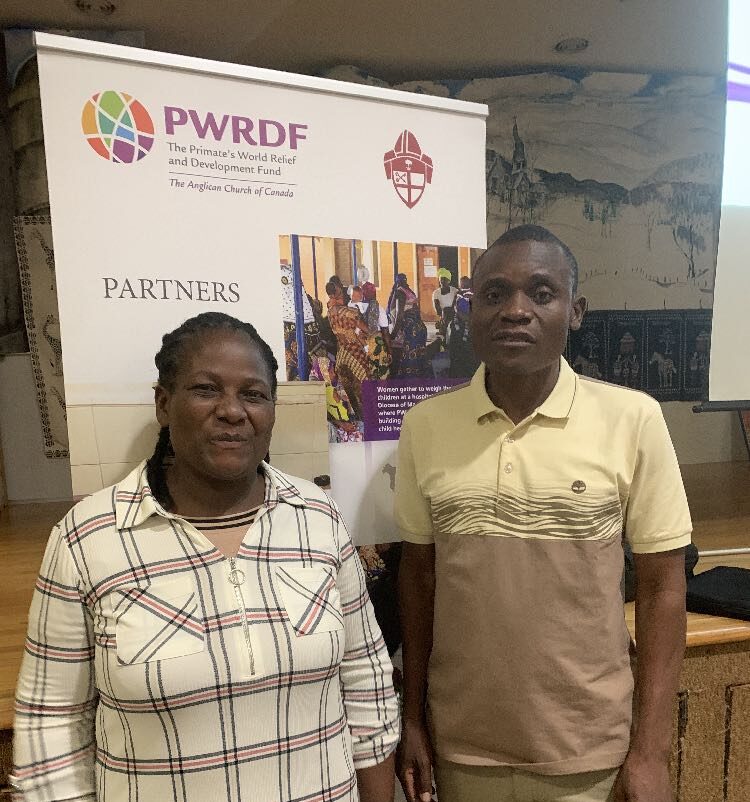There was a festive atmosphere at St. Stephen’s Church in Ottawa on a November evening as the diocesan Primate’s World Relief and Development (PWRDF) Working Group launched PWRDF’s new name — Alongside Hope and Auprès de l’espoir in French. The new name is effective March 1, 2025, but it will be a gradual transition to use the new name.
The working group was hosting two people from Zimbabwean partner TSURO (Towards Sustainable Use of Resources Organization) Trust, and St. Stephen’s went all out preparing a wonderful meal that included Zimbabwean dishes. After dinner Roseline Mukonoweshuro and Farai Gumisai took the large group who attended the event on a slide-show tour of their numerous innovative agricultural projects in the Chimanimani mountains in the in Manicaland Province of Zimbabwe.
Due to climate change, biodiversity loss and land degradation, people in their area are facing many challenges, including food insecurity. They are susceptible to weather events and natural disasters.
Gumisai described the devastating effects of a 2019 cyclone which caused flooding and landslides that destroyed the village, fields, orchards and washed all their crops away. Cyclones are more frequent now. “We must come together to mitigate the effects of climate change,” he said.
The TSURO Trust is working to improve conditions with project funded by the Canadian Foodgrains Bank and the Government of Canada, and supported by PWRDF that uses nature-based solutions to improve biodiversity and strengthen climate resilient livelihoods.
- Conservation agriculture techniques such as minimizing soil disturbance, maximizing soil cover, and maximizing crop diversity.
- Assisted natural regeneration and enrichment planting such as incorporating fruit trees, indigenous trees, and fodder crops into farmers’ fields and household areas in conjunction with wider landscape rehabilitation through tree planting and natural restoration processes.
- Improved water management including use of structures to control soil erosion, farm level water harvest technologies and water conveyance systems. This includes the construction of four solar-powered boreholes. Solar panels are mounted above a borehole well to provide the power needed for a pump to extract water. A narrow shaft drilled approximately 60-80 metres into the water table by a rig, and the water flows from a raised tank of 10,000 litres into pipes that supply water to households for domestic use and livestock watering.
- Improved livestock and range management such as community planned grazing, improved fodder crops and improved crop-livestock systems. This includes distribution of heifers to farmers.
A biodiverse landscape enables community members to build more resilient livelihoods.
- Use of nature-based solutions in agricultural production and improved marketing to enable higher income earnings.
- New or improved agro-ecosystem activities including non-timber forest products such as fruit, nuts and honey; and production and marketing of fuel-efficient stoves to foster resilient livelihoods. Two initiatives include fish ponds stocked with tilapia and demonstration sites teaching farmers how to grow mushrooms.



Saint Mary’s Church, Westmeath — Deanery of the Northwest